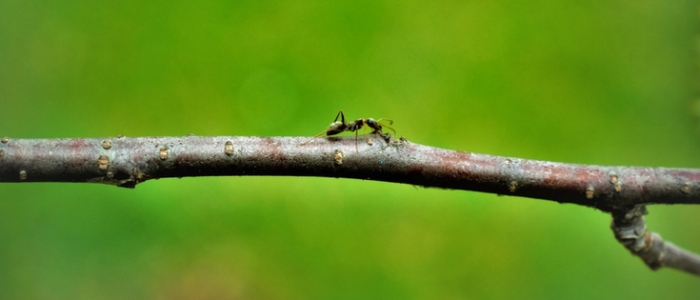Utilizing bait formulations for a variety of pests may be the best answer. Although sometimes used interchangeably, there is a difference between “bait” and “lure” depending on the application. The use of pheromones for stored product pests, and specific host compounds to attract bed bugs would be examples of lures designed to attract and capture a pest. Whereas baits are formulated to attract, but then are consumed by the target pest to deliver a lethal dose. Surveys show an overwhelming preference of pest professionals that utilize some form of bait as their primary control method.
Keys to Success
- Set reasonable expectations – baits may take longer to gain control, but will often lead to a more permanent solution.
- Bait Avoidance (Aversion) – it has been shown that some populations of insects avoid baits with glucose and possibly even fructose as an attractant. Ant feeding preferences vary between carbohydrate and protein sources sometimes daily.
- Bait Failure (Resistance) – there are multiple factors involved in bait choice; use different attractants, use active ingredients with different modes of action, use newer baits with multiple actives or multiple attractants to get the best results.
- Contamination – insects have a keen sense of smell and taste; so consider the consequences of even slight chances of contamination. Some common mistakes are listed below: Don’t use contact residuals or repellent base insecticides in the vicinity of the bait. Store baits away from other products. Using other products could mask the scent of the attractant, leave an unpalatable taste, change the feeding behavior, or even kill the target pests before they have a chance to transfer the active ingredient back to the colony. Don’t using cleaning agents like bleach before and after the treatment to remove insects, mild soap and water on a paper towel is a good way to dispose of most household pests.
- Hire a professional – As you can see, it’s not as easy as it may seem. Although small, ants and roaches have a high reproductive capacity and the problem can get out of hand very fast.
Pest management professionals are highly trained and have a lot of resources available. It is often cheaper to pay for the service than trying to do it yourself. “Pest management professionals are highly trained and have a lot of resources available. It is often cheaper to pay for the service than trying to do it yourself.”

